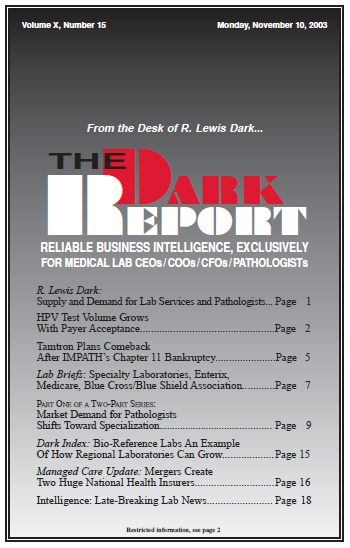CEO SUMMARY: Because cervical cancer screening involves more than 55 million Pap tests per year in the United States, it is a high-profile segment of the lab testing industry. HPV testing is making steady inroads into the cervical cancer screening process. Digene Corporation is the direct beneficiary of this, but Cytyc Corporation and TriPath Imaging …
HPV Test Volume Grows With Payer Acceptance Read More »
To access this post, you must purchase The Dark Report.


